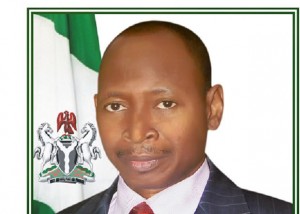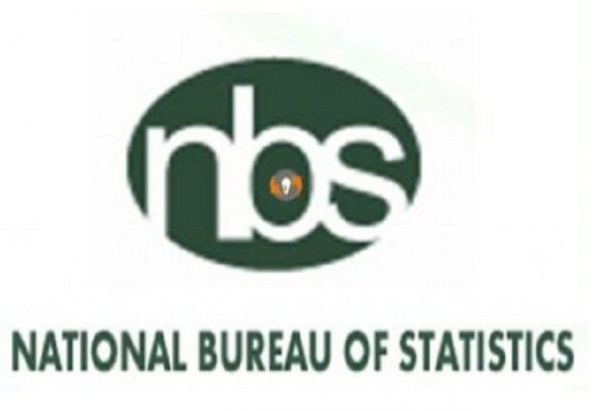FG closes 20,000 bank accounts, moves N5.2tn into TSA …to expand TSA scope

Since the commencement of the Treasury Single Account in September 2015, over 20,000 accounts with Deposit Money Banks belonging to Federal Government Ministries, Departments and Agencies have been closed with a total sum of N5.24tn moved into the TSA.
The Accountant-General of the Federation, Ahmed Idris, gave the figures on Tuesday in Abuja at the opening session of a two-day retreat on the TSA.
The event, which was attended by Vice President Yemi Osinbajo; Minister of Finance, Mrs. Kemi Adeosun; and Secretary to the Government of the Federation, Mr. Babachir Lawal, among other top government officials, had as its theme: ‘One year anniversary of the Treasury Single Account: Benefits, challenges and way forward’.
The TSA is a platform used by the government to unify all its accounts by ensuring that all monies belonging to it are kept with the Central Bank of Nigeria.
The initiative, which commenced fully in September 2015, has been complied with by over 900 agencies of government.
Since the commencement of the TSA, there have been massive job losses in the banking industry due to declining deposits.
But Idris described the implementation of the TSA as one of the success stories in the management of public finances in the country.
For instance, he explained that through the policy, the government had been able to block leakages and abuses, which had characterised the public sector before the commencement of the TSA.
Apart from blocking leakages, Idris said the TSA initiative had assisted the government to overcome the burden of indiscriminate borrowing by the MDAs, thus saving a lot on bank charges associated with the borrowings.
For instance, he noted that prior to the full commencement of the TSA, the government was incurring about N4.7bn monthly as bank charges, adding that this had been eliminated through the initiative.
He said, “The TSA journey started way back in April 2012. That journey could not see the light of the day as no significant gains were recorded largely due to the lack of political will. However, the issuance of the TSA circular in August 2015, coupled with the political will and enforcement, enabled us to achieve considerable progress on the TSA implementation.
“As at the 10th of February, 2017, the total inflow of funds through the mop-up and direct debits by the Central Bank of Nigeria amounted to N5.24tn. We have successfully eliminated multiple banking arrangements, resulting into the consolidation of over 20,000 bank accounts, which were spread over the Deposit Money Banks across the country.
“This has further brought about transparency and effective tracking of government revenues.”
Adeosun said the Federal Government would expand the coverage of the TSA to more agencies this year.
The minister said the government would continue to persuade statutory agencies to come under it.
She stated that the Federal Government was already discussing with service providers, adding that it would improve the implementation and functionality of the TSA because of its huge benefits.
Adeosun also stated that the government would be reaching out to the TSA service providers in order to allow other e-commerce and e-payment providers access to the platform.
This, according to her, is very important to make the TSA as competitive as possible in terms of pricing.
She said, “One of the challenges that we have is who should bear the cost of the TSA. Currently, it is being borne centrally, but that is not sustainable. We are now working on how to stratify the various agencies.
“Those who should bear their own costs and costs that should be borne by the government.”
Adeosun explained that the Federal Government, through the Office of the Accountant-General of the Federation, had issued circulars to banks arising from revelations through the implementation of the whistle-blowing policy that some banks had not fully remitted government funds in their possession.
She stated, “There are still funds in commercial banks and we have written to the banks giving them a window to come forward.
“Where in doubt, they have been asked to consult us. We also have an audit team that has started the process of checking the completeness of monies that were transferred into the TSA and already, they have been able to recover a significant amount of money.”
Osinbajo, who declared the workshop open, said while the implementation of the TSA had brought about considerable gains to the Federal Government and to the Nigerian economy, there was a need to identify the most feasible ways to take the initiative to the desired level.
He said the government would continue to explore the inherent potential of the TSA and identify the most economically viable options of resource utilisation and deployment as there was now an improved visibility in government revenue and cash flows.
For instance, he said before the TSA implementation, it took an average of 28 days to access cash after revenue had been collected through commercial banks.
The Vice President, who was represented by his Special Adviser on Economic Matters, Dr. Adeyemi Dipeolu, added that it was also taking about 21 days for the MDAs to access their budgetary allocations after release from the treasury.







